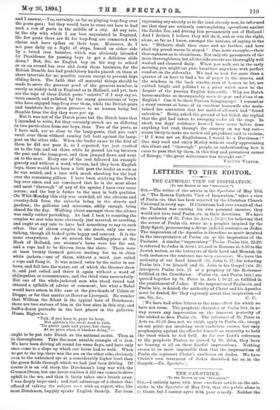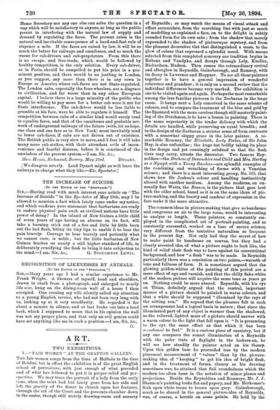THE CAB-STRIKE.
To THZ EDITOR OF THE "8PECTATOR."1 SIR,—I entirely agree with your excellent article on the cab- strike in the Spectator of May 19th, that the public alone is to blame, but I cannot agree with your rimedy. Neither the Home Secretary nor any one else can solve the question in a way which will be satisfactory to anyone, so long as the public persist in interfering with the natural law of supply and demand by regulating the fares. The present crisis is the natural and inevitable consequence of a hard-and-fast rule of sixpence a mile. If the fares are raised by law, it will be so much the better for railways and omnibuses, and so much the worse for cab-drivers and cab-proprietors. From this there is no escape, and free-trade, which would be followed by healthy competition, is the only solution. Every cab-driver, as in Paris, should be compelled to put his price in a pro- minent position, and there would be no jostling in London, as you suggest, any more than there is in any town in Europe or America where cab-fares are not State-regulated. The London cabs, especially the four-wheelers, are a disgrace to civilisation, and far worse than in any other European capital. I believe there is a large minority of the public who would be willing to pay more for a better cab were it not for State interference. The cab-driver would be less liable to grumble at his fare, were he able to regulate it himself. The competition between cabs of a similar kind would surely tend to equalise fares, and that of the omnibuses and probable net- work of underground railways of the future (with, let us hope, one class and one fare as in New York) must inevitably tend to lower cab-fares, if cabs are not driven out of existence. The British public is very slow to move, and I fear it will take many more cab-strikes, with their attendant evils of incon- venience and fearful distress, before it is convinced of the -anwisdom of the present system.—I am, Sir, &c., Ham House, Richmond, Surrey, May 23rd. DYSART.
[We disagree utterly. Lord Dysart might as well leave the railways to charge what they like.—En. Spectator.]



































 Previous page
Previous page